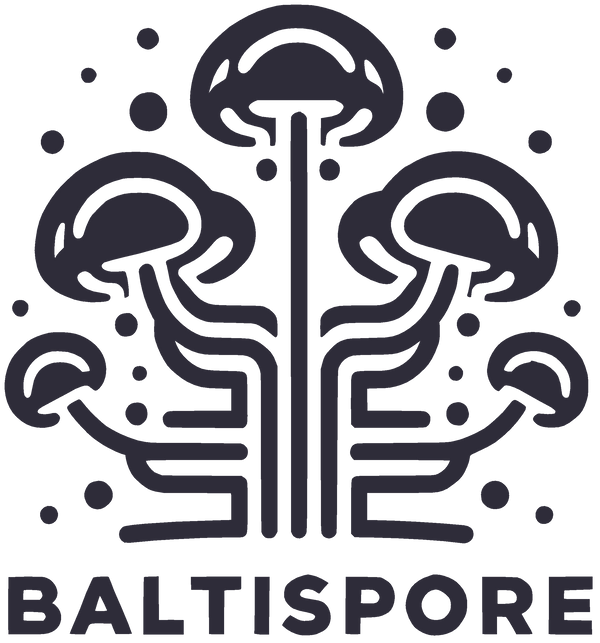If mushrooms were royalty, Chaga would undeniably wear the crown. Inonotus obliquus, more commonly known as Chaga, isn't your ordinary mushroom. This enigmatic fungus holds a regal status in the world of health and wellness, earning it the moniker "The King of Medicinal Mushrooms." Today, we're taking a closer look at this remarkable organism and its many wonders.
The King in Disguise
Let's start with a surprising fact: Chaga isn't technically a mushroom. That's right. The part we refer to as 'Chaga' and use for its various benefits is actually a hardened mass of mycelium, called a sclerotium. This unique form of growth is essentially a nutrient storage system that the fungus creates to survive harsh conditions[^1^]. It grows primarily on birch trees in the frigid climates of the Northern Hemisphere, absorbing and concentrating many beneficial compounds directly from the tree[^2^].
The Potent Powerhouse
Chaga is incredibly rich in a variety of nutrients and biologically active compounds, some of which are scarce in other organisms. Notably, it contains a significant amount of melanin, contributing to its characteristic dark exterior. This pigment has high antioxidant properties, aiding in the protection of cells against damage[^3^].
In addition, Chaga is the most antioxidant-rich food on the planet, with an ORAC score (a measure of antioxidant capacity) that outmatches even superfoods like acai berries and dark chocolate[^4^]. Among its roster of antioxidants are superoxide dismutase, a potent enzyme that protects against oxidative damage, and betulinic acid, a compound with promising health benefits[^5^].
The Sovereign of Health Benefits
Historically, Chaga has been used in traditional medicine for its vast array of potential health benefits. It contains a wealth of vitamins and minerals, including B-complex vitamins, vitamin D, potassium, rubidium, cesium, amino acids, fiber, copper, selenium, zinc, iron, and more[^6^].
Recent scientific research has also begun to unravel Chaga's potential in various areas of health. It's shown promise in supporting immune function, combating inflammation, and even aiding in digestive health[^7^][^8^]. Preliminary studies also suggest it may help reduce inflammation in joint-related conditions[^9^].
Why Chaga Rules
So, why is Chaga considered the king of medicinal mushrooms? Its unique growth form, unparalleled antioxidant capacity, vast nutrient profile, and broad spectrum of potential health benefits certainly qualify it for this royal title. The potential this fungus holds is a testament to the many wonders nature provides and a reminder of the ever-evolving journey of discovery in the realm of health and wellness.
Remember, while Chaga and other medicinal mushrooms can offer many health benefits, they should be used as a part of a balanced diet and healthy lifestyle, not as a substitute for professional medical advice or treatment.
Are you ready to explore the kingdom of Chaga and other medicinal mushrooms? Visit our website www.baltispore.com for a variety of mushroom products and resources.
Sources:
[^1^]: Moore, D. (2013). Fungal Biology in the Origin and Emergence of Life. Cambridge: Cambridge University Press. (https://www.cambridge.org/core/books/fungal-biology-in-the-origin-and-emergence-of-life/5F2B7F151EDF15959D4140A177130C9F)
[^2^]: Lemieszek, M., & Langner, E. (2016). Chaga (Inonotus obliquus): A Medical Mushroom. (https://www.ncbi.nlm.nih.gov/pmc/articles/PMC4946216/)
[^3^]: Cui, Y., Kim, D.S., & Park, K.C. (2004). Antioxidant effect of Inonotus obliquus. Journal of Ethnopharmacology. (https://www.sciencedirect.com/science/article/abs/pii/S0378874104002192)
[^4^]: Zheng, W., & Miao, K. (2010). The antitumor activity of a polysaccharide-protein complex from Lycium barbarum. Pharmacogn Mag. (https://pubmed.ncbi.nlm.nih.gov/20668560/)
[^5^]: Najafzadeh, M., et al. (2007). Chaga mushroom extract inhibits oxidative DNA damage in lymphocytes of patients with inflammatory bowel disease. BioFactors (https://pubmed.ncbi.nlm.nih.gov/18997282/)
[^6^]: Glamočlija, J., et al. (2015). Chemical characterization and biological activity of Chaga (Inonotus obliquus), a medicinal "mushroom". Journal of Ethnopharmacology. (https://www.sciencedirect.com/science/article/abs/pii/S0378874115000436)
[^7^]: Lemieszek, M., & Langner, E. (2016). Anticancer effects of fraction isolated from fruiting bodies of Chaga medicinal mushroom. International Journal of Medicinal Mushrooms. (https://www.ncbi.nlm.nih.gov/pmc/articles/PMC4946216/)
[^8^]: Youn, M.J., et al. (2009). Chaga mushroom (Inonotus obliquus) induces G0/G1 arrest and apoptosis in human hepatoma HepG2 cells. World Journal of Gastroenterology.(https://www.ncbi.nlm.nih.gov/pmc/articles/PMC2658785/)
[^9^]: Park, S.Y., et al. (2004). Anti-inflammatory activity of betulinic acid in mice. European Journal of Pharmacology.(https://pubmed.ncbi.nlm.nih.gov/15582416/)

